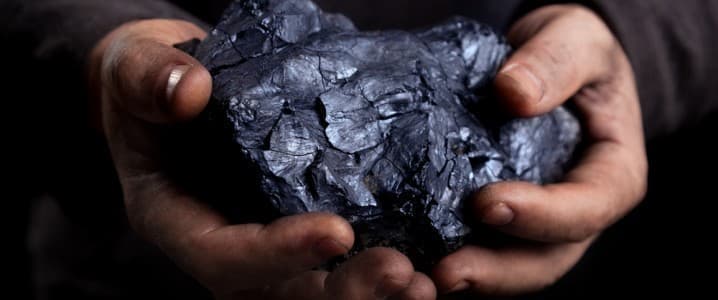Coal, the dirtiest of the world’s fossil fuels, has been in terminal decline for years now. Investment in the once-vital commodity has crashed, and the ESG movement is only accelerating that trend. Analysts are no longer questioning whether the fuel will recover, and are instead asking which country will be the last to build a new coal plant. A report released this week by climate and energy think tank Ember found that global coal-fired electricity fell by 4 percent in 2020, a record drop. That loss in coal-fired power was made up for by a 4 percent gain in wind and solar capacity (totaling more than 314 terawatt-hours).
Once one of the world’s cheapest and most abundant fuel sources, coal is now struggling to compete against clean energy alternatives that are now cost-competitive (both solar and wind power became cheaper than coal in most of the world back in 2019). At the same time, the flood of low-emissions natural gas from the United States shale revolution has also driven down demand for coal.
But all of that was before the global pandemic tore through the global economy and transformed our collective priorities. We’ve seen this before. Countries often make lofty climate goals and commit to leaving coal behind until crisis hits - and then they run back to their old stalwart fuel source. It happened to Japan after the 2011 Fukushima nuclear disaster drove the country away from nuclear energy. It’s happening to Mexico as the nation scrambles to shore up its energy security in the face of an economic downturn. Canada considered a return to coal to fill the economic holes left by the demise of its oil sands. And now China is leading the charge back to coal in an effort to establish energy security and sovereignty in the face of economic downturn and pandemic fears.
According to a report from Power Engineering this week, “China has emerged far and away as the dominant driver in [coal’s] rising relevance for the developing world.” While the world’s coal consumption dropped by 4 percent, China’s gained 2 percent over the last year. “Worldwide,” the report continues, “China now accounts for 53 percent of the overall coal-fired generation portfolio.”
China’s rise in coal production and consumption is not limited to domestic activity. At the same time that Beijing has been committing to loftier climate goals than ever before, pledging to go carbon neutral by 2060 and to reach peak emissions in just a decade, it has ramped up coal production both at home and abroad, where at least a portion of those increased emissions will be attributed to other country’s carbon footprints.
Related Video: Nuclear fusion: The Unlimited Future
Two years and an eternity ago, Yale Environment 360 predicted China’s return to coal and warned that the country’s ambitious overseas development plans will directly imperil global climate initiatives. “China’s Belt and Road Initiative is a colossal infrastructure plan that could transform the economies of nations around the world,” the article stated. “But with its focus on coal-fired power plants, the effort could obliterate any chance of reducing emissions and tip the world into catastrophic climate change.”
China is not just re-emerging as a coal-fired world power. Beijing has also positioned itself at the forefront of the global clean energy movement and China holds a monopoly on many of the rare earth metals that the clean energy production chain relies on. To characterize China as a one-dimensional climate destroyer or climate savior is clearly a massive and disingenuous oversimplification of the issue. While these kinds of flattened portrayals are common, the reality is much more complex, and the nuances of it are extremely important, not just for China, but for the globe. As the world’s second-largest economy (for now) and largest greenhouse gas emitter by a massive margin, China’s success or failure in its climate pledges is of paramount importance to the entire world. A return to coal is not the whole story, but it’s a seriously worrying development.
By Haley Zaremba for Oilprice.com
More Top Reads From Oilprice.com:
- OPEC’s Biggest Fear Is Becoming A Reality
- Investors Are Betting Big On Energy Stocks In 2021
- Most Hydrogen Is A “Climate Killer”: Enel Executive


















